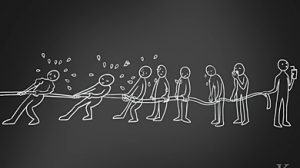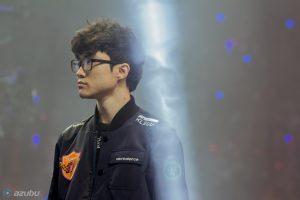Today, I was faced with a familiar but difficult question at a meeting: what is your goal by the end of this year? I promptly responded with the goal of reaching 100,000 subscribers on my Youtube channel having just finished editing a video prior to this meeting. Many reacted with surprise, noting that although a difficult goal to accomplish, it would be feasible as I had already amassed a fan base of 25,000 subscribers. Analyzing the numbers now having said it, the goal almost looked impossible. How could I quadruple my fan base in just eleven months? Consequently, I asked myself: are the goals that we sometimes set not effective?
Goals are definitely what keep us motivated, they can be what enable ourselves to constantly improve ourselves. But to what extent does this actually apply? Our textbook presents goal-setting to be effective if one’s goals are specific, measurable, attainable, results-oriented, and time-bound (1). By structuring goals to abide by this criteria, in theory, should one’s goals influence and motivate.
Further analyzing my own goal of increasing my subscriber count on Youtube, I saw that it fit these criteria. It had a specific number to achieve, it was easily measured by subscribers, it was absolutely attainable as evidenced by my current success, it showed obvious results, and was bounded to be achieved by the end of the year. Therefore it made sense that this goal, while ambitious, was definitely something that still motivated me.
In team-oriented settings and workplaces, these criteria also make perfect sense. If any one of these criteria would be missing in setting goals for a team, a team member may feel hopeless or aimless in their pursuits. This has been reflected in my experiences, having been part of a team with no greater goals in mind other than to continue what had been done in the past. Needless to say, this goal failed to motivate others, as it had not necessarily supported the group’s initial vision of bettering its content from the last year, violating the criteria of being results-oriented.
As such, goals should be approached with and set out with care. I believe that organizations should carefully plan out and set these powerful motivating tools in order to utilize the full potential of their workers, while individuals must take the same precautions to realize their dreams.
- Langton, Robbins, Judge, Organizational Behaviour, 7th edition, p. 128.

